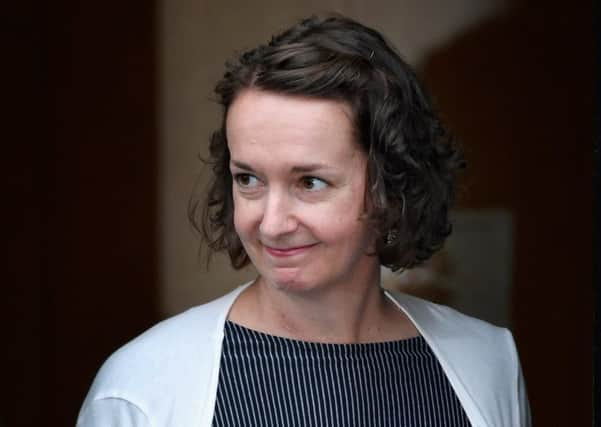Scots nurse blames watchdog for failing to spot Ebola


The 40-year-old, who nearly died twice from the virus, was cleared of all wrongdoing by the Nursing and Midwifery Commission (NMC) this week after an 18-month investigation alleged she had hidden a fever from doctors when going through screening at Heathrow airport in 2014.
Ms Cafferkey, who had been working for a Save the Children hospital in Sierra Leone when she contracted Ebola, said screening at the London airport was chaotic, with a shortage of screening kits and staff unable to cope with the numbers of returning medics.
Advertisement
Hide AdAdvertisement
Hide AdPublic Health England (PHE) allowed staff to take eachother’s temperatures, she claimed, which is a breach of its own protocol.
She told a Sunday newspaper: “I went out there to help save lives but I came back to a system that failed. I was made a scapegoat for a catalogue of errors.
“PHE were entirely responsible. They, not me, put public lives at risk by allowing me to fly before they had an opinion from an infectious diseases official.”
Ebola can incubate in the body for up to 21 days but it is not infectious until the person begins to show symptoms such as a high temperature.
While in the screening unit, another doctor discovered Ms Cafferkey’s temperature was 38.2C and then 38.3C, which is above the normal 37C.
She felt fine but took a paracetamol automatically as she thought she was simply exhausted from a night shift.
However when she got through security, a colleague suggested that she return to the screening unit where she claims a consultant took her temperature and told her she could fly back to Glasgow.
The next day Ms Cafferkey was diagnosed with one of the highest viral loads of Ebola ever recorded and flown to the Royal Free Hospital in London by miltary aircraft, triggering a nationwide alert.
Advertisement
Hide AdAdvertisement
Hide AdAfter a month in intensive care she began to recover but she was rushed back to hospital on two further occasions with devastating complications triggered by the virus.
Ms Cafferkey, of Cambuslang, South Lanarkshire, said: “It’s been awful being thought of as dishonest. It’s like my reputation had been destroyed, even though I knew I had done nothing wrong.”
She has now started working as a nurse again in Blantyre, South Lanarkshire, but she has to take a cocktail of drugs to manage the side effects.
Professor Paul Cosford, director of health protection and medical director at PHE, said: “There is an agreed version of facts between the NMC and Pauline Cafferkey and her representatives and this description goes beyond these.
“PHE screened thousands of returners from countries most at risk of Ebola and did so with efficiency and courtesy throughout. We have nothing further to add.”